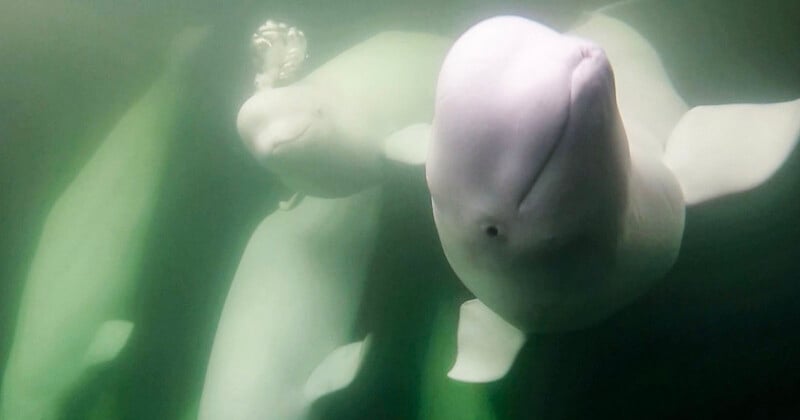A Beluga Whale Livestream Will Be Broadcasting This Weekend

Tomorrow (July 15) marks Arctic Sea Ice Day and to celebrate, two beluga whale live cams are being set up for online enthusiasts.
Two Sony cameras with underwater housing will broadcast from two locations; Hudson Bay and the Churchill River as the belugas migrate to their breeding grounds.
The cameras, attached to boats, have been set up by Polar Bears International (PBI) and Explore.org and will be part of a citizen science program called “Beluga Bits” where anyone can contribute to beluga research.
The beluga cam project has been going since 2013 with the underwater cameras having gone through significant upgrades since then.
![]()
“Viewers can expect to see and hear dozens (or more) of adult belugas and their calves swimming, nursing, and feeding in the Churchill River estuary,” says Alysa McCall, director of conservation outreach and staff scientist at Polar Bears International.
“Due to their curious nature, many belugas swim right up to the underwater camera and play in the wake of the boat. Perhaps one of the most interesting elements of the beluga cam experience is hearing the whales vocalizing and communicating with each other.”
Citizen Scientists and Beluga Whales
While the cameras are for observing the adorable beluga whales, McCall also hopes that the underwater video footage will produce a wealth of photographic information about the marine mammals.
“Several years ago, researchers at the Assiniboine Park Zoo (APZ) partnered with PBI and Explore.org to start examining snapshots from the underwater camera in order to gain more insight into the belugas’ underwater world,” explains McCall.
“This project, titled Beluga Bits, involved citizen scientists taking snapshots of the whales and alerting researchers to interesting findings.
“As the project expanded the research team started to collect hours of video from the beluga cam which resulted in hundreds of thousands of images each year. We encourage people to participate here.”
![]()
Researchers have begun using artificial intelligence (AI) that can rapidly sort photos and remove photos that do not contain whales. This allows the participants in the Beluga Bits project to spend more time classifying whales.
“Since Beluga Bits was launched, we have engaged over 17,000 community members on Zooniverse alone who’ve logged over 11,000 volunteer hours while contributing more than four million photo classifications,” says McCall.
“This project has not only helped us understand beluga whales better, but it also offers a unique view into their rich underwater habitat.”
The beluga cams wil lbe live here.
Image credits: All photos by Madison Stevens / Polar Bears International.